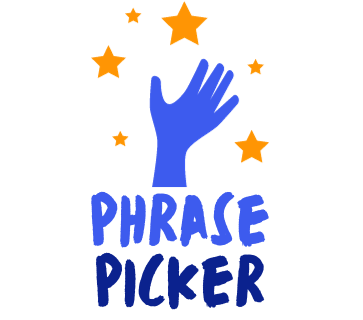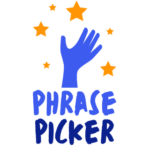Introduction
Embracing the art of conversation requires an understanding of the nuances of language. One such subtly significant nuance is the phrase – ‘You are most welcome’. This phrase, while simple in its construct, carries a profound message of acceptance and respect. This article aims to delve deeper into its usage, contextual compatibility, and possible alternatives. Let’s embark on this linguistic exploration together.
Key Takeaways
- The phrase ‘you are most welcome’ is a polite way to respond when someone thanks you, indicating a high degree of graciousness.
- ‘You are most welcome’ can be used not only in personal interactions but also in the professional environment, exuding a cultured and positive demeanor.
- Alternatives to ‘you are most welcome’ include responses such as ‘it was my pleasure’, ‘don’t mention it’, ‘not at all’, ‘happy to help’ and ‘glad I could assist’.
Other Ways to Say “you are most welcome”
- It’s my pleasure
- Not at all
- Don’t mention it
- No problem at all
- Of course
- Glad to help
- Happy to be of assistance
- Not a problem
- Not to worry
- It was nothing
- My pleasure
- Anything for you
- Don’t mention it
- Glad to have been of help
- Always happy to help
Formal Variants of ‘You Are Most Welcome’
When interacting in a formal setting, choosing a refined way to reply to gratitude can set a polite and sophisticated tone. Replacing the familiar phrase ‘You are most welcome‘ with an alternative can demonstrate respect towards the other person. Here are some formal variants:
- ‘It’s my pleasure‘, is a gracious response, subtly implying that you enjoyed the act for which you are being thanked.
- Choosing ‘I was happy to help‘, signifies your willingness to offer assistance, making others feel supported and cherished.
- With ‘Don’t mention it‘, you convey the message that their gratitude is understood without the need for formalities.
- ‘Glad to be of service‘ demonstrates a sense of duty and responsibility.
These alternatives, while seemingly minor, can help construct a professional image, and cultivate a workplace environment rooted in respect and acknowledgement.
Dear Mr. Smith,
I hope this email finds you well. I am writing to inform you that your proposal has been received and carefully reviewed by our team. You are sincerely welcome to present your findings at our upcoming conference.
Best regards,
John Doe
How To Answer Formal
In any social scenario, responding to gratitude with ‘You are most welcome’ can foster a sense of warmth, respect, and appreciation. This phrase, typically preferred in formal interactions or written communication, elevates the basic ‘You’re welcome’ to a more gracious and respectful level. For instance, after a client meeting or professional lunches, it’s common courtesy to thank for the cash favors or information shared during the meeting. Replying with ‘you are most welcome’ rather than a simple ‘welcome’ can leave a lasting impression and convey a deep sense of respect.
While this phrase is versatile, it’s important to note that its usage, like all language, is best defined by context. Words are not one-size-fits-all, thus ‘you are most welcome’ is most effective when applied in appropriate situations and relationships. To illustrate this, compare its usage in a formal business meeting with a casual meal with friends: it makes more sense in the former setting than the latter. Being mindful of your audience and environment is key.
Here are few other formal alternatives to ‘You are most welcome’:
- It was my pleasure.
- I’m pleased to be of help.
- I’m glad I could assist.
- Your gratitude is appreciated.
- Always happy to help.
Email Response
Dear [Name],
I highly appreciate your warm welcome. Your support in facilitating my transition to this new phase is indeed a strong encouragement.
I am obliged by your gracious welcome, and I look forward to contributing positively to our shared goals.
Regards,
[Your Name]
No Problem, At Your Service!
When you want to express the sentiment of ‘you are most welcome’ in a more relaxed and informal context, there are many other expressions that can be used. No problem, don’t mention it, and it’s all good carry the same courteous intent while giving off a more laid-back vibe. This informal variant is best used among friends, family, or in more relaxed professional settings where a stiff, formalistic approach isn’t necessary. The camaraderie built this way can help foster a warm and inviting atmosphere.
Dear John,
I hope this email finds you in good health. I just wanted to let you know that your request for the data sheets has been approved. It was no trouble at all and I was happy to help.
Should you need anything else, don’t hesitate to ask. No worries at all!
Best regards,
Jane
How To Answer Informally
The phrase you are most welcome is often employed as a polite and formal response to a thank you. Despite this, there is a multitude of ways to express it in a more informal context. Depending on the situation and relationship you share with the person, you could use phrases such as No problem, Don’t mention it, It’s nothing, Happy to help, or Anytime.
Consider the scenario where a close friend thanks you for helping them move some furniture. In this case, a formal ‘you’re most welcome’ might seem too stiff, and it would be more suitable to respond with a lighthearted ‘no problem’ or ‘happy to help’. Alternatively, if a colleague thanks you for lending them a pen, a simple ‘don’t mention it’ or ‘it’s nothing’ can convey your sentiment.
Here are some further examples of informal expressions to use instead of ‘you’re most welcome’:
- No problem
- Don’t mention it
- Happy to help
- Anytime
- It’s nothing
Dear John,
Thank you for reaching out to me. I am thrilled to hear your feedback.
You are most welcome. It’s always a treat to lend a helping hand.
Looking forward to future collaborations.
Best,
Jane Doe
Is It Correct to Say “you are most welcome”?
So, is it correct to say: you are most welcome? Absolutely, it is not only correct; it is also a very polite version of responding to someone who has just thanked you. This phrase has a formal undertone and is often used in professional contexts, giving it a general appropriateness for various situations. It is not considered rude in any circumstances but instead, demonstrates respect and gracious acknowledgment of the other person’s gratitude.
Moreover, the phrase ‘you are most welcome’ operates like a magnifying glass emphasizing that the favor or service performed was indeed a pleasure and nothing of stress or inconvenience. It moves beyond the traditional ‘you’re welcome,’ providing a touch of added warmth and sincerity to your correspondence.
In summary, the phrase ‘you are most welcome’ is indeed correct, polite, and generally acceptable. And with that, we hope that through this article, you have gained a better understanding of how to use ‘you are most welcome’ with confidence and ease.



